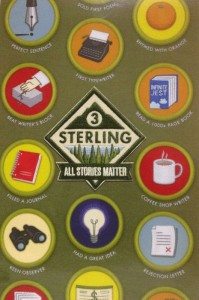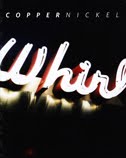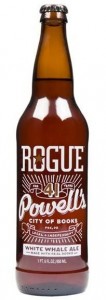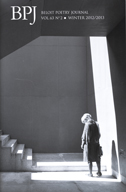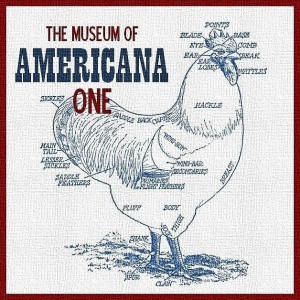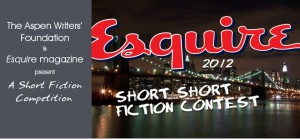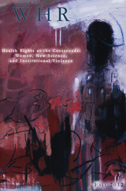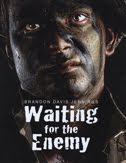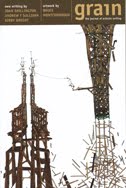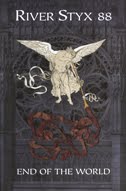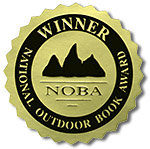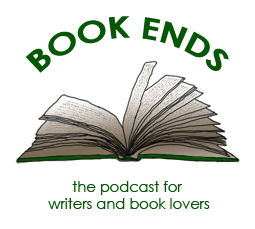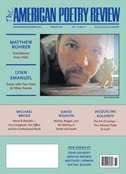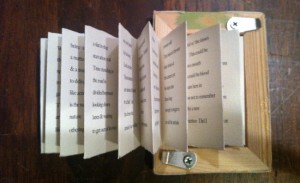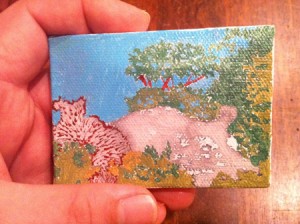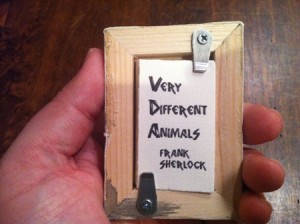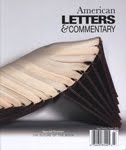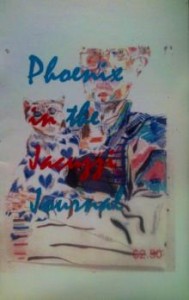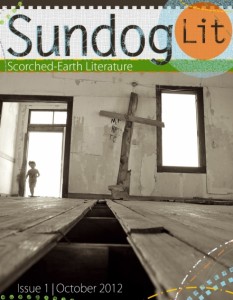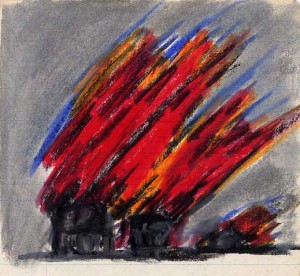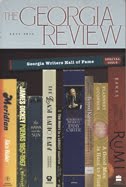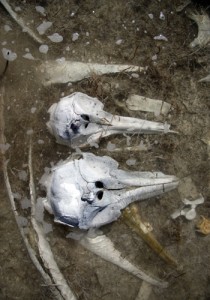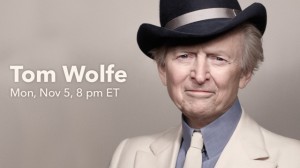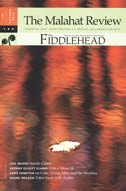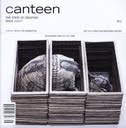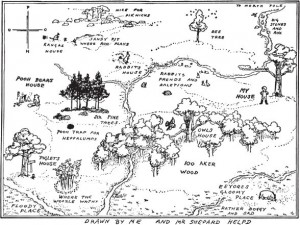All Paul Dry Books 30% off until December 15 and shipping is free. Buy 3 or more books and they’ll throw in a free copy of either A Russian Schoolboy or Up in the Hills. (Tell them your pick in the “Notes” section of the order form.) Enter the coupon code HOLIDAY-2012 during checkout to receive this discount.
Documentary :: Harana
 HARANA, a film project that Florante wrote and conceived about the search for harana practitioners, debuted at the BUSAN and HAWAII International Film Festivals in October 2012.
HARANA, a film project that Florante wrote and conceived about the search for harana practitioners, debuted at the BUSAN and HAWAII International Film Festivals in October 2012.
About Harana: Upon his father’s death, Florante, a classically trained guitarist returns to the Philippines after 12 years of absence. During his stay he rediscovers the music of harana – a long-forgotten tradition of Filipino serenading when men sang under the window at night to fearlessly declare their love for a woman.
Intent on unearthing these unheralded songs, Florante travels to the remote provinces where he discovers three of the last surviving practitioners – a farmer, a fisherman and a tricycle driver. Astounded by their golden voices, Florante asks them to travel with him to perform and record these unknown songs. During their travels, the haranistas meet Brian, a shy young man who for years has been secretly in love with a schoolmate. The haranistas, who have not serenaded in the last thirty years, offered their services to serenade Brian’s object of affection, resulting in one of the most tender moments of genuine harana captured on film.
[From the film website.]
Writer Patches: Sterling journal
Sterling, a magazine we have just added to our complete guide to literary magazines, sends out its third issue with an attached patch. Meant to resemble the boy scout patches, the cover features patches for writers including “Rejection Letter,” “Keen Observer,” “Filled a Journal,” and my personal favorite, “Rhymed with Orange.” The editors says, “For the first printing, an actual iron-on embroidered patch was used for the wordmark. This 3″ square of awesomeness is well suited for denim, baseball caps, and framing.”
The issue features new poems, plays, and stories by Vincenzo Aliberti, David Bester, Michael Casteels, Channah Cohen, Armel Dagorn, Teresa Del Mastro, Simona Dragu, Tina Gagliardi, Channie Greenberg, John Grey, Stacey Lane, Joe Massingham, Steven Mayof, Daniel Perry, Jeannine Pitas, Kaye Spivey, and Hilary Trapp.
Comprehensive New Collection of Louise Glück’s Works
A new collection of the poetry of Louise Glück was released last month from Ecco and Farrar, Straus, and Giroux. Poems 1962 – 2012, at 628 pages, is a clearly comprehensive look at the ouevre of the Pulitzer-Prize-winning poet.
Beginning with Glück’s Firstborn, published in 1968, Poems gathers 11 of her titles in total, ending with 2009’s A Village Life. Included are The Wild Iris (1992), which earned Glück the Pulitzer; Ararat (1990), for which she earned the Rebekah Johnson Bobbitt National Prize for Poetry from the Library of Congress; and 1985’s The Triumph of Achilles, which received the National Book Critics Circle Award, the Boston Globe Literary Press Award, and the Poetry Society of America’s Melville Kane Award. Her list of additional awards is extensive.
Glück’s poetry is devoid of frills, of cloying layers of too-heavy imagery. Instead, her language is sparse and plain, though no less descriptive in its detail:
I look out over the sterile snow.
Under the white birch tree, a wheelbarrow.
The fence behind it mended. On the picnic table,
mounded snow, like the inverted contents of a bowl
whose dome the wind shapes. The wind,
with its impulse to build.
The stripped-down language is deceptive in its simplicity. Glück can draw you in to her quiet world and then deliver a sudden blow:
Late December: my father and I
are going to New York, to the circus.
He holds me
on his shoulders in the bitter wind:
scraps of whitepaper
blow over the railroad ties.
My father liked
to stand like this, to hold me
so he couldn’t see me.
With poetry like this, there is little need for allegory or other traditional techniques. Which is not to say Glück does not use them: 2006’s Averno draws its name from a crater lake near Naples that was regarded by ancient Romans as the entrance to the underworld, and the 18 poems in the book retell the Persephone myth. But regardless of the devices used, Glück’s work remains simple, beautiful, almost hauntingly so; as she says, “I am prepared now to force / clarity upon you.”
Andrei Codrescu on Reddit AMA Thursday, Dec. 5
Andrei Codrescu, author of the just-published Bibliodeath (Antibookclub), will be participating in a Reddit AMA session on Thursday, Dec. 5 at 10 a.m. Central time/11 a.m. Eastern.
To join in the discussion or ask a question, follow this link Thursday at the specified time: http://www.reddit.com/r/IAmA/
Bibliodeath is a book-length essay that addresses the end of the book in its print form. Codrescu mingles his thoughts about the migration of books to new formats with a memoir of his own writing history. Footnotes, pages long at times, serve as a parallel commentary to the book. Instead of falling into one camp or the other, Codrescu uses the concept of archives, both literal and metaphorical, to meditate on the transformation of the written word.
Codrescu is a poet, novelist, and contributor to NPR’s All Things Considered. He is the author of numerous books and was a distinguished professor at Lousiana State University before retiring to the woods a few years ago. A new collection of his poetry, So Recently Rent a World: New and Selected Poems, 1968-2012, is forthcoming next week from Coffee House Press. More information about the author and his wors can be found at his website.
Reddit’s AMA (Ask Me Anything) series lets readers submit questions to the participant, who will respond to them in real time. Questions can be on any topic. Participants have ranged from a driveway sealcoater, a toll booth worker, and a professional circus acrobat to Eric Idle, Larry King, and Barack Obama.
Copper Nickel Contest Winners
The most recent issue of Copper Nickel features the winners of their 2012 contests. Fiction was selected by Kevin Wilson, and Paisley Rekdal judged poetry.
Fiction
First Place
Anne Valente: “Dear Amelia”
Special Mention
Sarah Gerkensmeyer: “My Husband’s House”
Adam Sturtevant: “The Pretenders”
Finalists
Shabnam Nadiya: “And We Rise How We Rise”
Leslie Rakowicz: “Celia”
Poetry
First Place
Tarfia Faizullah: “Reading C
LitRagger: New App for the iPad
A brand new, free app called LitRagger is now available—released on Dec. 2. Exclusively for small press and university publishers, this app sells editions of journals featuring fiction, poetry, and essays. Readers can download the app for free and then purchase either single issues or subscriptions to the magazines.
Current participating magazines include Hobart, Prairie Schooner, Sycamore Review, Willow Springs, Bellevue Literary Review, Gulf Coast, Revolution House, FIELD, and Salamander. “The app features page turn animations, interactive tables of contents, and sharing on multiple devices—as well as regularly updated, free content.”
From the press release: “Developed by Adam Lefton and Landon Sandy, a computer science student at Purdue University, LitRagger simplifies the process of digital publication for journals with small staffs and even smaller budgets. As Managing Editor of Sycamore Review, Adam discovered that the methods currently available for entering the digital marketplace were too costly and inefficient for biannual and quarterly publications. With Landon’s coding expertise, they built LitRagger to make it easy and cost effective for literary journals to offer content on the iPad.”
To get the app on your iPad, you can search “LitRagger” in the app store, or go here for a link to download it.
Maya Angelou Interview
The editor of Splash of Red magazine thanked the readers for being loyal by asking them if they had anyone they would like to see interviewed. One ambitious reader asked for an interview with Maya Angelou, and Splash of Red was able to deliver.
In the interview, Angelou discusses her writing process: “When I’m writing a book, I keep a hotel room in town – whatever town I’m living in – and I’m on the first floor. I rent it by the month. I talk with housekeeping management and I explain that I don’t want anybody in my room so they never have to change sheets or change towels. I don’t use any of that. I go in around 6:30 in the morning. And I keep in the room my Bible, a Roget’s Thesaurus, a Random House dictionary, stacks of yellow pads, and pens and crossword puzzles. . . .”
After further discussion on this answer, SoR asks “Even though you have performed with dance and been involved in theater, what is it that inspires you to write poetry as a creative medium?” Angelou admits that she doesn’t think she has ever been asked that question before: “I love the sound of the human voice. I’ve never been asked that before, I don’t think. I know I’ve never given that answer before but that’s really what it is. You see poetry is music written for the human voice and I love it. I spent six years of my life as a mute, a voluntary mute. I could speak but I wouldn’t. I would go into a room and think of my whole body as an ear. And I could go into a room and absorb all of the sound osmotically through my pores, my ears, and my hair. And I’ve never found any human voice I didn’t like. I’ve found words they’ve said…but the voice itself – I love the human voice. English to me is the most fantastic language.”
You can read the full interview on Splash of Red’s website.
White Whale Ale
Another great gift idea for the holidays: “Powell’s Books has collaborated with Rogue Ales and Spirits to create a beverage for anyone who has a thirst for books and artisan craft beer — White Whale Ale, infused with the seafaring spirit of Moby-Dick. The concept behind the project was to go where beer has never gone before — by adding actual pages from a copy of Moby-Dick to the brew.”
Chad Walsh Poetry Prize
Each year, Beloit Poetry Journal awards $4,000 for the Chad Walsh Poetry Prize, honoring Chad Walsh, the cofounder in 1950. The prize this year is the gift of Alison Walsh Sackett and Paul Sackett.
The award goes to Elizabeth T. Gray, Jr. for her poem “Albania” that was published in the Winter 2011/2012 issue.
Former winners include Margaret Aho, Karl Elder, Jessica Goodfellow, Mary Molinary, Lucia Perillo, Glori Simmons, Onna Solomon, and Charles Wyatt.
New Lit on the Block :: the museum of americana
We are happy to welcome the museum of americana to our guide to literary magazines. Born from the desire to “revive and repurpose our cultural heritage” and pass it on to the next generation, the magazine publishes nonfiction, fiction, poetry, reviews, interviews, photography, and artwork. Editor Justin Hamm says that this quarterly online magazine’s name contains the word “museum” because it is what they’d like to accomplish. “One of the best parts of a museum experience is the juxtaposition,“ he says. “Dozens of periods exist under the same roof, which can create a pretty interesting mixture. We want our readers to have that kind of experience with each issue, to move from, say, Thomas Jefferson to Doo-Wop in one mouse click. At the same time, ‘museum’ is not meant to imply ‘retired’ artifacts under glass. We’re especially interested in work that makes Americana new, that experiments with or repurposes it in unexpected ways.”
Hamm says that beyond excellent reading and art, you can expect to experience “something akin to running into an old high school friend after twenty years, a simultaneous mixture of familiarity and foreignness.” Hamm says that the editors woud like to restore the cultural heritage’s vitality by “publishing work that uses the old as construction material for something new. Americans are down in a lot ways right now. We’re divided. Now seems like a good time to revisit our shared past.”
The first issue of the museum of americana includes poetry from Tony Barnstone, Scott Beal, Jenn Blair, Jeff Kass, Kathleen Kirk, Norbert Krapf, Christopher Martin, Kevin Millar, Dale Patterson, Pepper Trail, David Walsh, and Karen Weyant; fiction by Sean Conaway, Joyce Goldenstern, Paul Jaskunas, and Dan Mancilla; and nonfiction by Chelsey Clammer.
In the near future, the editors hope to add music and short films to the website as well as develop a team of regular reviewers to “spotlight Americana-themed books.” Eventually, they would like to become a print publication, perhaps even publishing some chapbooks and books.
Other editors include Poetry Editors Karrie Waarala and Tim Hunt, Prose Editors Lauren Alwan and Lindsey Griffin, and Photography/Art Editor Jennifer Joy Jameson.
The next reading period is the month of December. Submissions can be sent via email with full guidelines on their website. “We hope you’ll add submitting to us to your holiday to-do lists,” Hamm says.
Rattle Poetry Prize 2012
The most recent issue of Rattle announces and publishes the winning piece of the 2012 Rattle Poetry Prize for $5,000: Heidi Shuler’s “Trials of a Teenage Transvestite’s Single Mother.” The editors writer, “A good poem doesn’t need to impress us with sophisticated language or fresh and unexpected metaphors. It doesn’t need to rhyme or not rhyme, or explore the until-now unexplored. But a good poem does have to take us somewhere and make us feeling something. With a momentum and a sense of emotional suspense that made us hold our breath, Heidi Shuler perfectly captures the intersection of a mother’s loving fear and a teenage son’s innocence about the world.” Here are the first two stanzas of her poem:
My son’s black ruffled skirt is shorter than the straight denim one
he usually wears. We’re late for school. Don’t dawdle, I say
as he swings one leg out of the truck and then the other, far unlike
how my grandmother taught me–knees clasped, pivot at the hips,
feet land together, and stand, ladylike. Those were Iowa manners;
this is Eugene, Oregon, etiquette, twenty years later. . . .
The poetry prize finalists include Lytton Bell, John Brehm, Norma Chapman, Kim Dower, Anna Evans, Catherine Freeling, David Hernandez, Krista Lukas, M, and Kenny Williams.
Glimmer Train September Fiction Open Winners :: 2012
Glimmer Train has just chosen the winning stories for their September Fiction Open competition. This competition is held quarterly. Stories generally range from 2000-6000 words, though up to 20,000 is fine. The next Fiction Open will take place in December. Glimmer Train’s monthly submission calendar may be viewed here.
 First place: Doug Lawson [pictured], of Los Gatos, CA, wins $2500 for “The Mushroom Hunter.” His story will be published next November in the Winter 2014 issue of Glimmer Train Stories.
First place: Doug Lawson [pictured], of Los Gatos, CA, wins $2500 for “The Mushroom Hunter.” His story will be published next November in the Winter 2014 issue of Glimmer Train Stories.
Second place: Meghan Kenny, of Baltimore, MD, wins $1000 for “Heartbreak Hotel.”
Third place: Andrew MacDonald, of Toronto, Ontario, wins $600 for “Four Minutes.”
A PDF of the Top 25 winners can be found here.
Short Short Fiction Contest Finalists
The Aspens’ Writers Foundation and Esquire magazine teamed up for a Short Short Fiction Contest that awarded 10 finalists who will gather in NYC for a writing workshop taught by Colum McCann. The finalists will read their piece in front of a live audience of judges. They are also invited to “Fiction Night at the Esquire,” a celebratory party where the winner will be announced. The winner will receive full scholarship to a fiction workshop at Aspen Summer Words, Writing Retreat and Literary Festival in Aspen, Colorado. The finalists are:
Kashana Cauley | New York, NY | Avenue B
Angela Cummings | Kirkland, WA | Humane
Alex DeBonis | Paris, TN | In the Market for Heartache
Kenneth Gagnon | Dover, NH | Impact
Ivy Hansen | Carbondale, CO | To Do
Daniel McGillivray | Brooklyn, NY | Neither
Courtney Sender | Baltimore, MD | Accounting
Richard Rauch | Lacombe, LA | Devilment at the Comfort Inn
Bob Thurber | North Attleboro, MA | My Father’s Study
Casey Walker | Iowa City, IA | Picnic, Lightning
Health Rights at the Crossroads
This special issue of Western Humanities Review is themed “Health Rights at the Crossroads: Women, New Science, and Institutional Violence.” The editors say, “Together these articles [in the magazine] exemplify the vital conversation in the medical humanities and social sciences that is emerging at the intersection of women’s rights, emerging technologies of science and health, and institutional violence. This conversation and the articles in this issue raise critical questions about the meanings of power and empowerment for women engaged in practices such as wage labor via assisted reproductive technologies and sex, and the political and economic struggles over the circumstances within which they will engage in these labors and have access to health services such as abortion.”
The issue features writers Leslie Butt, Kelly Ray Knight, Rachel Niehuus, Sharmila Rudrappa, Carolyn Sufrin, and Tracy Weitz and was guest edited by Galen Joseph and Dorothy Porter.
Waiting for the Enemy
Each year, Iron Horse Literary Review publishes a single-author contest and issue. This year they have chosen to feature Brandon Davis Jennings. The editors say, “This chapbook of stories stormed through the Iron Horse office and left us in a shambles! We’re now big fans of this writer, and if we can just get a copy to your doorstep, we know you’ll feel the same way.”
New Academic Journal :: Word Hoard
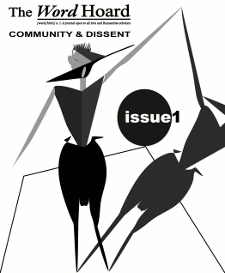 Peer edited and drawing on an editorial presence that includes students from the Centre for American Studies, the Centre for the Study of Theory and Criticism, Modern Languages and Literatures, Comparative Literature, Women’s Studies & Feminist Research, and the Department of English, Word Hoard is a new community journal supported by Western University’s Graduate English Society.
Peer edited and drawing on an editorial presence that includes students from the Centre for American Studies, the Centre for the Study of Theory and Criticism, Modern Languages and Literatures, Comparative Literature, Women’s Studies & Feminist Research, and the Department of English, Word Hoard is a new community journal supported by Western University’s Graduate English Society.
Word Hoard is currently soliciting articles, essays, and interviews for their second issue. They invite submissions between 3000-5000 words related to the provocation and concept of “The Unrecyclable.” Article and interview submissions are due 15 January, 2013. Accepted submissions can expect online and print publication in the summer of 2013.
Current Issue: Volume 1, Issue 1 (2012)
Community and Dissent
Articles available full-text (PDF) online:
Editors’ Introduction: Leif Schenstead-Harris, Nina Budabin McQuown, and Kevin Godbout
“Prometheus Queer: An Interview With Daniel Allen Cox” by Matthew Halse and Dock Currie
“The Progeny of Prometheus: Solidarity as Gift” by Mary Eileen Wennekers
“Identity, Memory and Place” by Kelly Baker
“Queer Spaces and Strategic Social Constructions in Rao’s The Boyfriend” by Frederick D. King
“Embracing Identity Politics as a Way of Dealing with a Self in Crisis in Edmund White’s The Married Man” by Zied Khemakhem
“Nationalism, Community, Literature” by Christopher Langlois
“Leadership, Authenticity, and the Arendtian World” by Rita A. Gardiner
“Leadership and Pedagogy in the Arts and Humanities: An Interview with Alison Conway and Joel Faflak” by Diana Samu-Visser and Nina Budabin McQuown
“Patricia Grace’s Potiki: A Case Study for the Adaptability of Postcolonial Theory to Indigenous Literature” by Karim Abuawad
“Publishing and Reading as Dissent: Resistance, Literary Tourism and Arsenal Pulp Press” by Casey Stepaniuk
“1984, Genesis Upside Down” by Jamie Rooney
“A Walking Tour of Light” by Leif Schenstead-Harris
“’& Then’: Word Hoard’s Closing Remarks” by Leif Schenstead-Harris, Nina Budabin McQuown, and Kevin Godbout
Haiku Horoscopes
At the back of each issue of Grain, Jonathan Ball contributes Haiku Horoscopes. Several of the editors at NewPages editors fall under the sign of Taurus. For the Fall 2012 issue, this is our horoscope:
It’s time that you did
Something about that wombat
Who owes you money
The rest of the issue contains new writing by Joan Shillington, Andrew F. Sullivan, Kirby Wright, Ian Bullock, John Cameron, Laura Clarke, Jeanie Keogh, Allison LaSorda, Mark Jordan Manner, Ted Mc Carthy, Claire Millikin, Matt Nagin, Ruth Roach Pierson, David Romanda, and Jenna Spearing.
Children’s Literature :: Cozy Classics
Cozy Classics from Simply Read Books are a series of board books for children based on the classics Les Miserables (forthcoming), Pride and Prejudice, and Moby Dick. Each book contains twelve “child-friendly” words and twelve needle-felted photo illustrations. Brilliantly charming!
End of the World. End of the Book?
Supposedly, this is the year of the end of the world. Editor Richard Newman says, “The first books predicted the end of the world, and probably not long after, people began predicting the end of the book.” With the close of book publishers, magazines, and distributors, it’s easy to get downhearted about the situation, but Newman says he is not “singing the death song of the printed word.” He says, “Good literature will survive the trends and weather the storms and droughts, even if only a handful of people keep it alive and don’t surrender to the rapture of destruction.”
The most recent issue of River Styx is based on the theme of the end of the world. “In these pages we have presented the irrational struggle with the end of everything—our fear of the end at odds with our odd hope for it,” Newman says. Contributors include Bruce Bennett, Lee Upton, Albert Goldbarth, Juliana Gray, Gary Leising, Michael Salcman, Rachel Christilles, William Greenway, Dorianne Laux, Lawrence Raab, Alison Pelegrin, Maura Stanton, Michael Derrick Hudson, Erika Meitner, Greg Pape, Gaylord Brewer, Andrew Hudgins, Jeffrey Hammond, Robert Finch, George Singleton, and Geoff Schmidt.
In addition, the winners of the 2012 River Styx International Poetry Contest are included. The submissions were judged by A. E. Stallings, and the contest is in memory of Anne and James Lindsey.
First Place
Hailey Leithauser: “Minnows”
Second Place
Debra Marquat: “Ground Oregano”
Third Place
Brain Brodeur: “Cousins”
Honorable Mentions
Michael Derrick Hudson
Josephine Yu
Alison Pelegrin
Ryan Wilson
2012 Outdoor Book Awards Announced
Thinking about holiday shopping for the nature lover in your life? This year’s Outdoor Book Awards have been announced, and with the variety of categories in the awards, there’s something for everyone.
BlazeVOX Thanksgiving Menu Poem 2012
The Thanksgiving Menu Poem 2012 is an annual online event, this year, featuring Guest of Honor: Bill Berkson.
From BlazeVOX [books]: “For two thousand and twelve we are celebrating with a twelve-course meal over twelve hours. This is a book length poetry project matched with haute cuisine, including a full biography of Bill Berkson with poems, links to more poems, reviews and interviews. The whole project will go live on Thanksgiving morning, so be sure to come and have a feast. Please feel free to invite your family, friends, and colleagues.”
Event Info
Date: Thanksgiving Day, November, 22 2012
Time: All day and will be up for the rest of the year
Online Address: www.blazevox.org/index.php/thanksgiving-poems/
Thanksgiving Menu Poems Past:
Keith and Rosmarie Waldrop 2011
David Shapiro 2010
C. D. Wright 2009
Anne Waldman 2008
Ron Silliman 2007
John Ashbery 2006
Robert Creeley 2005
Kent Johnson 2004
Forrest Gander 2003
Charles Bernstein 2002
New Podcast :: Book Ends
Created by writer and award-winning blogger Philippa Moorem, Book Ends is a new weekly (Wednesdays) podcast by writers for writers and those who love the written word. Novels, poetry, travel writing, biographies, cook books and all manner of printed works will be discussed: writers in conversation about their work, their inspiration and their advice to those wanting to follow in their footsteps. The program is available online and via iTunes subscription.
Episode 1: Nikki Gemmell
Episode 2: Lisa Jewell
Episode 3: Ivy Alvarez
Adrienne Rich on Anne Sexton
In the most recent issue of American Poetry Review, Lynn Emanuel, a former student of Adrienne Rich at City College in New York, shares a speech given by Rich during the year of Anne Sexton’s death. “The speech is typed on onionskin,” says Emanuel, “and stained by the tape I used for many years to attach it to the wall above my various desks.”
Emanuel says that 1974 was a “tumultuous year for Rich and her students.” It was the year Sexton killed herself, and it was about the time that Rich published her work Diving into the Wreck as well as came out as a lesbian feminist. Rich’s speech, given to the women in her college workshop, begins:
“Anne Sexton was a poet and a suicide. She was not in any narrow or politically ‘correct’ sense a feminist, but she did some things far ahead of the rebirth of the feminist movement. She wrote poems alluding to abortion, masturbation, menopause, and the painful love of a powerless mother for her daughters, long before such themes became validated by a collective of consciousness of women, and while writing and publishing under the scrutiny of the male literary establishment . . .”
The rest of the speech is printed in American Poetry Review, the November/December 2012 issue.
Philip Roth Retires
During a recent interview, Philip Roth told French magazine Les Inrocks that he will retire from writing: “To tell you the truth, I’m done. Nemesis will be my last book.”
According to the Daily Star, Roth says he has spent most of his time in recent years preparing material for his biographer, Blake Bailey: “If I had a choice, I would prefer that there is no biography written about me, but there will be biographies after my death so [I wanted] to be sure that one of them is correct.”
Roth said he had asked his literary executors and his agent to destroy his personal archives after his death once Bailey has finished the biography. “I don’t want my personal papers hanging around everywhere.”
Book Burning Party
Posted on BookFox (John Matthew Fox), this video shows Troy, Michigan’s risky approach to saving their public library. Could be role model for other cities with similar ballot proposals in the future.
American Life in Poetry: Column 399
BY TED KOOSER, U.S. POET LAUREATE
Our sense of smell is the one sense most likely to transport us through time. A sniff of fried fish on a breeze and I can wind up in my grandmother’s kitchen sixty years ago, getting ready to eat bluegills. Michael Walsh, a Minnesotan, builds this fine poem about his parents around the odor of cattle that they carry with them, even into this moment.
Barn Clothes
Same size, my parents stained and tore
alike in the barn, their brown hair
ripe as cow after twelve hours of gutters.
At supper they spoke in jokey moos.
Sure, showers could dampen that reek
down to a whiff under fingernails, behind ears,
but no wash could wring the animal from their clothes:
one pair, two pair, husband, wife, reversible.
American Life in Poetry is made possible by The Poetry Foundation (www.poetryfoundation.org), publisher of Poetry magazine. It is also supported by the Department of English at the University of Nebraska-Lincoln. Poem copyright ©2010 University of Arkansas Press, from The Dirt Riddles by Michael Walsh, University of Arkansas Press, 2010. Reprinted by permission of Michael Walsh and the publisher. Introduction copyright © 2012 by The Poetry Foundation. The introduction’s author, Ted Kooser, served as United States Poet Laureate Consultant in Poetry to the Library of Congress from 2004-2006. We do not accept unsolicited manuscripts.
******************************
American Life in Poetry provides newspapers and online publications with a free weekly column featuring contemporary American poems. The sole mission of this project is to promote poetry: American Life in Poetry seeks to create a vigorous presence for poetry in our culture. There are no costs for reprinting the columns; we do require that you register your publication here and that the text of the column be reproduced without alteration.
A Very Different Book
Is it a book? Is it a painting? It’s Very Different Animals by Frank Sherlock, an accordion-fold book set in fonts VTKS Animal 2 and Big Caslon and mounted in Blick Studio mini canvasses. Each canvas features original artwork by Philadelphia artist Nicole Donnelly. It is printed in an edition of 100 on reclaimed 120 gsm Arches cotton wove watercolor paper. It is officially available on Fact-Simile‘s website at a discounted pre-sale price.
The Literary Review: The Long Issue
The Literary Review‘s Summer/Fall 2012 issue is subtitled “The Long Issue”: “Because some stories need room to grow.” Not typically done in the magazine world, this issue features only long poems and novellas.
Editor Minna Proctor says, “this issue’s theme came about because one of our contributors flagrantly ignored our submission guidelines and sent us a novella, which so roguishly intrigued us that we changed the guidelines so as to not interfere with the integrity of her winding story. We built an issue around her; a gesture of pure admiration. We built her a furious house of extraordinary writing.”
Included in this issue is poetry by H.L. Hix (“Aggression Cues”) and Joshua Weiner (“Rock Creek Park (II)”) and fiction by Kirstin Allio (“Quetzal”), Paula Bomer (“Inside Madeleine”), and Jesse Ball (“The Neck Verse”).
The Future of the Book
The future of the printed book is a thought that is probably always at the backs of our minds, as writers, as editors, as readers. American Letters & Commentary‘s newest issue is dedicated to this very topic. “Will technology increase access to literature or restrict it to those who can afford new technologies?” ask Co-Editors Catherine Kasper and David Ray Vance. “Will paper bound books become art objects for antiquarians, restricted to museums and wealthy collectors? Will producing electronic media prove more or less hazardous to the environment as compared with paper production for printed books?”
This special issue features essays by Joan Retallack and Ander Monson on the subject, and Dimitri Anastasopoulos, Christine Hume, Dave Kress, and Christina Millettii contribute a collaborative piece titled “Story Net” which “examines the concept of ‘tomorrow.'”
And then there is contributing art by Brian Dettmer that you really have to see. He is a book artist. “The richness and depth of the book is universally respected yet often undiscovered as the monopoly of the form and relevance of their information fades over time,” he writes. “By altering physical forms of information and shifting preconceived functions, new and unexpected roles emerge.” He explains his process as such: “I work with knives, tweezers and surgical tools to carve one page at a time, exposing each layer while cutting around ideas and images of interest . . . My work is a collaboration with the existing material and its past creators and the completed pieces expose new relationships of the book’s internal elements exactly where they have been since their original conception.”
Other poetry and prose contributors in the rest of the issue include Eric Anderson, Hadara Bar-Nadav, Denise Bergman, Thea Brown, Jennifer Chapis, Suzanne Cleary, Elizabeth Cross, Jesse DeLong, Dan George, AB Gorham, Richard Greenfield, Derek Gromadzki, Kathleen Hellen, Russell Jaffe, Christopher Kondrich, Brandon Krieg, Jason Labbe, Megan Levad, rob mclennan, B.Z. Niditch, Simon Perchik, Marthe Reed, John Phillip Santos, Anne Shaw, Kent Shaw, Carmen Gim
New Lit on the Block :: Phoenix in the Jacuzzi Journal
“What if a phoenix were to ignite in a Jacuzzi? Would anyone notice? Would the phoenix be reborn?” These are the questions that Editor Nicholas Wilsey asks. “I like to think the phoenix would reenter the world in a state of relaxation: a cool drink in its beak; a warm, bubbly feeling climbing up its wings,” he says. And thus, the name of his new literary magazine was born.
Phoenix in the Jacuzzi Journal is a print magazine that publishes at least twice a year in the spring in the fall. There is a possibility of having multiple issues in the spring and fall or a special issue in the winter and summer. They publish poems and short prose pieces.
“I am beginning to talk with other journals about doing a joint reading on the poetry-focused radio show I DJ, The Eggshell Parade,” Wilsey says. “I also intend to do an issue that includes a CD of musical adaptations of the issue’s pieces. I am going to have a lot of fun with PJJ. I invite readers and contributors to have a lof of fun with PJJ, Joe (Weil, Consigliere), and me.”
The inaugural issue features new writing from Grace Bauer, Adam Fitzgerald, Howie Good, Michael Homolka, Paul Hostovsky, Bridget Lowe, Andrew Nurkin, K.M.A. Sullivan, and Anne Valente.
PJJ accepts submissions through email. Authors whose work is accepted are invited to read on The Eggshell Parade.
NewPages Magazine Stand – November 2012
Got a bookstore or library near you with dozens of new lit and alt mags on the racks? Yeah, me neither, which is why we created the NewPages Magazine Stand for information about some of the newest issues of literary and alternative magazines. The Magazine Stand entries are not reviews, but are descriptions provided by the sponsor magazine. Sometimes, we’ll have the newest issue and content on our site before the magazine even has it on theirs. Good reading starts here!
Sips Cards
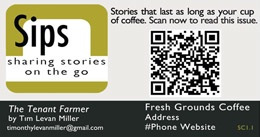 Sips Cards puts short (“lasts as long as a cup of coffee”) fiction and poetry into local coffee shop venues around the country (and in Scotland). Sips Cards is a publication run by artists, for artists. Each business card contains a QR code, loaded with a short story, or set of poems, from a writer meant to last as long as a cup of coffee. The cards include the issue’s author, story title, and website/e-mail.
Sips Cards puts short (“lasts as long as a cup of coffee”) fiction and poetry into local coffee shop venues around the country (and in Scotland). Sips Cards is a publication run by artists, for artists. Each business card contains a QR code, loaded with a short story, or set of poems, from a writer meant to last as long as a cup of coffee. The cards include the issue’s author, story title, and website/e-mail.
A QR code is free media media accessible with a barcode reader on any smart-type device, such as smartphones, iPods and iPads equipped with cameras, and other barcode scanning software. RedLaser and Barcode Scanner are two common, well reviewed apps, that are free to download and install on devices. These apps are easy to use and will also read typical linear barcodes.
A list of venues where Sips Cards can be found is available on the publication website, as well as contact information for letting Sips Cards know of a venue near you where you’d like to see the cards available.
Submissions for the Winter Issue (January) will be open through Friday, December 7th. The Winter Issue will contain two short story cards (each with one short story) and two poetry cards (each with one poem). There is a fee for submissions; authors whose works are selected receive payment.
New Lit on the Block :: Sundog Lit
Sundog Lit is a brand new online magazine (which I recently reviewed on Screen Reading) that quarterly publishes literary fiction, creative nonfiction, poetry, and hybrid works as well as occasional video, photography, and art. “We started this magazine because we were tired of quiet lit, stories where nothing happens and people stand around, idle, wondering about life instead of living it,” says Managing/Founding Editor Justin Lawrence Daugherty. “Our mission is to publish literature that scorches the earth. We don’t want quiet. We want it loud and incendiary.”
The name comes from an atmospheric phenomenon in which bright spots of light appear in the sky near the sun, sometimes making it seem as if the sun were wearing a halo. Daugherty says that this dual-sun image was perfect to describe their magazine, one in which was about both serious literature and about being “active, destructive, generating, and explosive.”
The editors aim to leave an imprint on their readers, allowing the literature to stick with them even after the internet browser is closed. Daugherty also expresses that readers will find a community of writers. “We promote work through our Friday Rex series, book-promotions such as in our current Texts Inspired by Robert Kloss’ The Alligators of Abraham series.” In time, they hope to bring in more hybrid works and experimental essays, photography and art, contests, and themed issues.
The first issue includes fiction from Lindsay Hunter, Casey Hannan, Aaron Teel, Ryan Werner, Edward Hagelstein, Helen McClory, and Jesse Hertz; nonfiction from Matthew Gavin Frank, Laura Zak, and Will Kaufman; and poetry from Bianca Diaz, Sarah Wynn, Donald Parker, Jenna Lynch, Cameron Witbeck, Daniel Romo, Charles Rafferty, and Valentina Cano.
The deadline for the next issue is mid-January, and Sundog Lit accepts submissions through Submittable. The other editors of the magazine include Fiction Editor Mensah Demary, Nonfiction Editor Richard Hackler, Poetry Editors Zarah Moeggenberg and Amy Pajewski, and Website Design and Nonfiction Editor Cynthia Brandon Slocum.
Broadsided: Responses to Superstorm Sandy
Moved by the plight of people affected by Superstorm Sandy, Brooklyn-based Broadsided artist Ira Joel Haber created the image featured here. Broadsided now asks writers to respond with words for Superstorm Sandy 2012. The editors will select the best responses and publish the resulting collaboration(s) with their December Broadsided feature, a pdf poster download. This is Broadsided’s second “Responses” feature. The first was to the 2011 earthquake and tsunami in Japan. Deadline for submissions: November 20.
Georgia Writers Hall of Fame
The Georgia Writers Hall of Fame, established in 2000 as part of the Hargrett Rare Book and Manuscript Library, highlights authors who are either from Georgia or who have produced a significant piece of work while in Georgia. Among these writers are some very well-known names, but all of the writers’ works “reflect the character of the state—its land and people.” This fall, the Hall of Fame is celebrating its new home in the new Richard B. Russell Special Collections Building.
In accordance with this, The Georgia Review has put out a special fall issue to highlight the work of these authors. The writing included in this issue spans a timeline, and Editor Stephen Corey urges you to read it in order: “you will welcome the experience of observing the historical shifts of style, subject, tone, and even spelling and punctuation across nearly two centuries.” They were not able to highlight all forty-three current members, but they were able to feature thirty-two.
These writers include Augustus Baldwin Longstreet, Elias Boudinot, Sidney Lanier, John Chandler Harris, W.E.B. Du Bois, Georgia Douglas Johnson, Conrad Aiken, Jean Toomer, Lilian Smith, Ralph McGill, Erskine Caldwell, Johnny Mercer, John Oliver Killens, Carson McCullers, Byron Herbert Reece, Calder Willingham, James Dickey, Jimmy Carter, Flannery O’Conner, Robert Burch, Raymond Andrews, Harry Crews, John Stone, Coleman Barks, Terry Kay, James Kilgo, Alice Walker, David Bottoms, Philip Lee Williams, Judith Ortiz Cofer, Melissa Fay Greene, and Natasha Trethewey.
Writers on Writing :: Glimmer Train Bulletin #70
The November issue of Glimmer Train’s eBulletin features craft essays by writers whose works have recently appeared in Glimmer Train Stories: Natalie Sypolt writes on “The Risk, the Reward of ‘Writing What You Know'”; Josh Henkin writes on “Consequence and Agency in Fiction”; Maggie Shipstead writes on “Focus”; David Ebenbach writes “Turquoise Shoes: Short Stories Care About the Little Things.” The bulletin is a free, monthly publication.
Flyway Soars Online
Managing Editor Chris Wiewiora let us know that Flyway: Journal of Writing and Environment will be moving fully online as a literary magazine after their final print issue, which Wiewiora refers to as “a tome of an anthology.” Flyway will continue publishing online on a rolling basis. They hope to launch the new site around AWP 2013 – so stay posted.
In addition, Flyway has extended the deadline for their Notes from the Field contest, “a non-fiction contest celebrating writing about experience — whether that be abroad, on a familiar sidewalk, in one’s line of work, in a field of interest, or in the most unexpected of times and settings.” The catchphrase this year is: “Get your hands dirty!” Featuring guest judge, travel and non-fiction writer, Rolf Potts. Deadline: November 12
American Life in Poetry: Column 398
American Life in Poetry
By Ted Kooser, U.S. Poet Laureate
David Hernandez is a Californian who knows how to have a good time with his writing. Here’s a delightful flight of fancy based on a negotiation with a postal clerk.
At the Post Office
The line is long, processional, glacial,
and the attendant a giant stone, cobalt blue
with flecks of white, I’m not so much
looking at a rock but a slab of night.
The stone asks if anything inside the package
is perishable. When I say no the stone
laughs, muted thunderclap, meaning
everything decays, not just fruit
or cut flowers, but paper, ink, the CD
I burned with music, and my friend
waiting to hear the songs, some little joy
after chemo eroded the tumor. I know flesh
is temporary, and memory a tilting barn
the elements dismantle nail by nail.
I know the stone knows a millennia of rain
and wind will even grind away
his ragged face, and all of this slow erasing
is just a prelude to when the swelling
universe burns out, goes dark, holds
nothing but black holes, the bones of stars
and planets, a vast silence. The stone
is stone-faced. The stone asks how soon
I want the package delivered. As fast
as possible, I say, then start counting the days.
American Life in Poetry is made possible by The Poetry Foundation (www.poetryfoundation.org), publisher of Poetry magazine. It is also supported by the Department of English at the University of Nebraska-Lincoln. Poem copyright ©2011 by David Hernandez from his most recent book of poems, Hoodwinked, Sarabande Books, 2011. Reprinted by permission of David Hernandez and the publisher. Introduction copyright © 2012 by The Poetry Foundation. The introduction’s author, Ted Kooser, served as United States Poet Laureate Consultant in Poetry to the Library of Congress from 2004-2006. We do not accept unsolicited manuscripts.
[]American Life in Poetry provides newspapers and online publications with a free weekly column featuring contemporary American poems. The sole mission of this project is to promote poetry: American Life in Poetry seeks to create a vigorous presence for poetry in our culture. There are no costs for reprinting the columns; they do require that you register your publication online and that the text of the column be reproduced without alteration.]
Laura Kasischke Spotlighted
I take delight in skimming through the literary magazine pile every week, reading the editor’s notes, skimming through the table of contents, and seeing what’s new. In the same pile, I received a copy of The Main Street Rag (Fall 2012) and Poetry (October 2012), both of which featured a recognizable name on their covers: Laura Kasischke. In March, she was awarded The National Book Critics Circle Award for her book of poetry, Space in Chains; she has published eight books of poetry and eight novels; and she now teaches at the Residential College at the University of Michigan, Ann Arbor.
Featured on the cover of Poetry‘s 100th anniversary issue, she contributes four poems. You must read all of them, particularly “Game.” Here’s an excerpt:
I ran deeper
into the bright black trees
happily
as she chased me: How
lovely the little bits and pieces.
The fingernails, the teeth. Even
the bombed cathedrals
being built inside me.
Then, in The Main Street Rag, we get a little insight as Jane Andrews interviews her. Kasischke discusses her writing style, talks about her published pieces, and gives advice to writing students. “I think I’m a crock pot whether I’m writing poetry or fiction,” she says, “except that with fiction, I’m actively working on a piece of writing over a long period of time. With poetry, I’m only half-aware that I’ve got the crock pot plugged in and that I’m working on something.”
Make sure to check out both!
Tom Wolfe Livecast Online: Tonight
Tonight at 8:00 p.m., Tom Wolfe will be part of 92Y‘s reading series. Wolfe’s newest book is Back to Blood, a novel set in modern-day Miami about “race, sex, art, and immigration.” He will sit and talk with Unterberg Poetry Center Director Bernard Schwartz. They will be taking questions via twitter using the hashtag #Wolfe92Y
Election Day Eve Books of Interest
If the current election cycle has not completely dampened your enthusiasm for politics and activism, you may be interested in a handful of political titles recently received here at NewPages. If it has, then wait for 2013 to clear your political palate, then start fresh with one of these interesting reads:
Billionaires & Ballot Bandits, published in September 2012 by Seven Stories Press, is an unabashedly liberal book from journalist Greg Palast. Palast is known for his investigative reporting of the controversial 2000 election—specifically, voter fraud in the state of Florida, and how Katherine Harris removed more than 50,000 names from the voter rolls as felons. This makes it all the more amusing that among the blurbs on the back of the book, including those from Noam Chomsky and Al Sharpton, Harris is listed as well: “Twisted and maniacal” is her “recommendation.” Palast is actually offering free downloads (donation optional) of his book through Election Day at this page on his website. Read it for the history of Palast’s reporting over the years, fueled by unapologetic outrage.
A handy resource for writers, bloggers, and those who want to sound impressive at dinner parties, What Liberals Believe (Skyhorse Publishing, September 2012, edited by Dr. William Martin) is a veritable Bartlett’s Familiar Quotations of liberal quotes. Originally published in 2008, this updated second edition has information on the 2012 election and a section called “The Best of the Obama Years and More.” The book is organized by broad categories, each containing specific topics (for example, “The Struggle for Equality” encompasses “Civil Rights,” “Diversity,” “Gays and Lesbians,” and “Intolerance,” among others). Quotes run the gamut throughout time, from Aesop and Buddha to Jon Stewart and Barack Obama.
What You Should Know About Politics…But Don’t, by Jessamyn Conrad, is also out in a second edition from Skyhorse Publishing (May 2012). Conrad’s non-partisan guide to political issues is divided into 13 chapters, each devoted to a broad topic—civil liberties, the environment, education, etc. This edition has been most heavily updated, since its original publication in 2008, in its chapters on the economy and foreign policy. Conrad’s goal is to present each issue framed by its arguments on both sides. Each chapter begins with a bulleted list of background facts, and key terms are highlighted in bold throughout.
Lastly, for those interested less in political issues and more in the theory behind change, Skyhorse has also published The American Spring: What we talk about when we talk about revolution (July 2012). Journalist Amelia Stein interviewed 26 artists, professors, filmmakers, activists, writers, and more. Her questions are designed not only to illuminate the interviewee’s background (“Describe…your first political experience”) but also to provoke additional discussion (“How much of knowledge is experiential?”). The resulting topics of conversation vary, from the importance of Emma Goldman to the Occupy Wall Street movement to nonviolent protest.
Get out and vote tomorrow, and then keep reading!
Pongo Poetry Prize Winner & Teaching Resources
The Pongo Poetry Prize is presented quarterly to a poem by a youth that is submitted on the Pongo web site. The prize winner also receives a $50 award. An archive of the winning poems and honorable mention awards can be found here.
“Where I Come From” was selected as the winning poem for August and can be read in full along with the honorable mention award poems on the Pongo Project Blog.
The Pongo web site has a writing activity on the theme of “Where I Come From” that can be used by teachers in the classroom or facilitators of writing groups.
The Pongo Teen Writing Project mentors personal poetry by teens who’ve suffered childhood traumas, such as abuse and neglect. The writers work with youth inside jails, shelters, psychiatric hospitals, and other sites. They help youth worldwide through the interactive writing activities on our web site. Their primary purpose is to help our authors understand their feelings, build self-esteem, and take better control of their lives.
Haiku Wanted
Broadsided Third Annual Haiku Year in Review Contest is on!
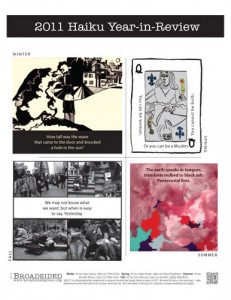 “Four artists are creating work in response to an event that, for them, dominated a season of 2012. We now ask for submissions of haiku that address the same topics. The art and the poems selected as finalists will be posted online, and YOU will vote on the winning combinations. The whole shebang will be published as January’s Broadsided collaboration.”
“Four artists are creating work in response to an event that, for them, dominated a season of 2012. We now ask for submissions of haiku that address the same topics. The art and the poems selected as finalists will be posted online, and YOU will vote on the winning combinations. The whole shebang will be published as January’s Broadsided collaboration.”
See full guidelines here.
About Broadsided:
Edited by Elizabeth Bradfield, Gabrielle Calvocoressi, Sean Hill, Alexandra Teague, and Mark Temelko, Broadsided has been putting literature in the streets since 2005. Each month, a new broadside is posted both on the website and around the nation.
Writing is chosen through submissions sent to Broadsided. Artists allied with Broadsided are emailed the selected writing. They then “dibs” on what resonates for them and respond visually – sometimes more than one artist will respond offering a selection of broadsides.
The resulting letter-sized pdf is designed to be downloaded and printed by anyone with a computer and printer. The goal is to create something both gorgeous and cheap, to put words and art on the streets.
The site contains a gallery of past broadsides, a map of cities/state/countries that have been broadsided (and where you can add yours), and links to other broadside sites.
Essential East and West Coast Writing
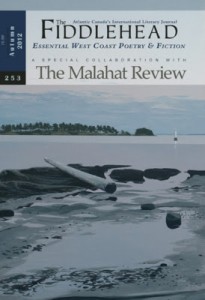 The Malahat Review, a west coast Canadian lit mag, and The Fiddlehead, Atantic Canada’s International Literary Journal, collaborate on their autumn issues to create two unique and complimentary collections. The Malahat Review‘s issue is titled “Essential East Coast Writing” while The Fiddlehead‘s is “Essential West Coast Writing.”
The Malahat Review, a west coast Canadian lit mag, and The Fiddlehead, Atantic Canada’s International Literary Journal, collaborate on their autumn issues to create two unique and complimentary collections. The Malahat Review‘s issue is titled “Essential East Coast Writing” while The Fiddlehead‘s is “Essential West Coast Writing.”
The work inside comes from writers with strong connections to the regions. The editors say, “The poems, short stories, essays, interviews, and reviews they have published in these issues don’t necessarily betray an affiliation to any particular ‘regional’ theme, focus, or aesthetic. However, we believe that ‘sense of place’—and a sense of the lives lived on either coast—does ‘issue’ from a reading and appreciation of each magazine’s take on the other’s region.”
And this was no easy task; the editors have been hard at work planning this venture for two years. And although the issues are now out and being distributed, they aren’t going back to their own corners of the country; they have a special blog dedicated entirely to this project. They hope it will spark dialogue and communication about what differs between east and west coast writing—and what unites it.
Canteen Editor Change
With the publication of Canteen‘s newest issue comes the end of Executive Editor Mia Lipman’s work with the magazine. She says that “it’s been more thrilling than dismaying to see the steep evolution of literary media since my cofounders and I first imagined the scope of our journal. We pictured it only in print that night in Brooklyn. But as we put the final touches on our inaugural iPad edition last year, it didn’t feel like a concession–it felt like a natural complement.”
The issue features Joshua Mohr, Rachel Howard, Marina Read Weiss, Marcus Jackson, Greg Vargo, Stacey Duff, Shanthi Sekaran, Gordon Edgar, Marlerie Willens, Matthew Aaron Goodman, Rowland Stebbins, Dave Katz, Sonny Smith, and an intriguing cover by Scott Campbell.
Vancouver International Writers Festival Contest Winners
subTerrain‘s newest issue features the winners of the Vancouver International Writers Festival Contest:
Poetry
Winner: John Xiros Cooper for “O Season, O Cities”
Runner-up: Joanna Lilley for “Biology Lesson”
Fiction
Winner: Leah Bailly for “Spiritus Mundi”
Runner-up: Stephanie Gray for “Pure White Light of Heaven”
And I have to just share a few titles of other pieces in this issue that are going to make you want to read them: “The Memory Machine Dreams of Forgetfulness” (John Belshaw), “A Form of Grace Already Forgotten” (Philip Quinn), and “How It Happens that You’ve Fathered a Child and It Shouldn’t Matter to Me When I Find Out Via Social Media” (Emily Davidson).
Top Ten Books With Maps
Another fun top ten list from The Guardian UK: Top Ten Books With Maps. Happy to see Winnie the Pooh made the list.
Literature, Arts, & Medicine Database
Literature, Arts, and Medicine: This site, sponsored by NYU, is a resource I keep coming across in my research. Time and again, when working on analysis of literature, this site pops up, and I have found it immensely helpful in guiding some of my work. Specifically, “The Literature, Arts, & Medicine Database is an annotated multimedia listing of prose, poetry, film, video and art that was developed to be a dynamic, accessible, comprehensive resource for teaching and research in MEDICAL HUMANITIES, and for use in health/pre-health, graduate and undergraduate liberal arts and social science settings.”
Fine for med students, as a lit student/teacher, this site works great for me! Each entry specifies genre (including medium for art), keywords (which help direct analysis from a medical perspective and are linked to others with the same theme), summary and commentary. Bibliographic information is also provided.
New Lit on the Block :: Mount Hope
Roger Williams University—situated on the shore of Mount Hope Bay in Rhode Island—is putting out a new biannual magazine called Mount Hope. It is available as a print issue as well as online via Issuu. They are looking for “good, literary, readable stories and poems” as well as essays and memoir. “Beyond writing,” says Editor Edward J. Delaney, “we like to run photography and graphic storytelling—a segment of a graphic novel or a stand-alone—with an emphasis on storytelling and literary merit.
Delaney says that Mount Hope is “the latest iteration of the literary magazine published for four decades at RWU, which has one of the first BFA Creative Writing Programs in the U.S., recently celebrating its 40th anniversary. Our mission is to give students hands-on experience and to support writers and the writing community.” Alongside Delaney is Poetry Editor Shelley Puhak and Adam Braver, writer-in-residence.
Within the magazine, readers will enjoy realistic, quality writing. “We favor stories in which something happens, and poetry that is not for insiders only,” says Delaney. They hope to “be a venue for lively work of interest to a general readership.”
The first issue features Steve Almond (nonfiction), Michael Cirelli, Christopher Hennessey (poetry), Denis Darzacq (photography), Matthew Hall (graphic novel), and interviews with Rick Moody and Lynne Sharon Schwartz.
They take submissions via email year-round with a three to six month cycle turn-around response. They accept simultaneous submissions.

